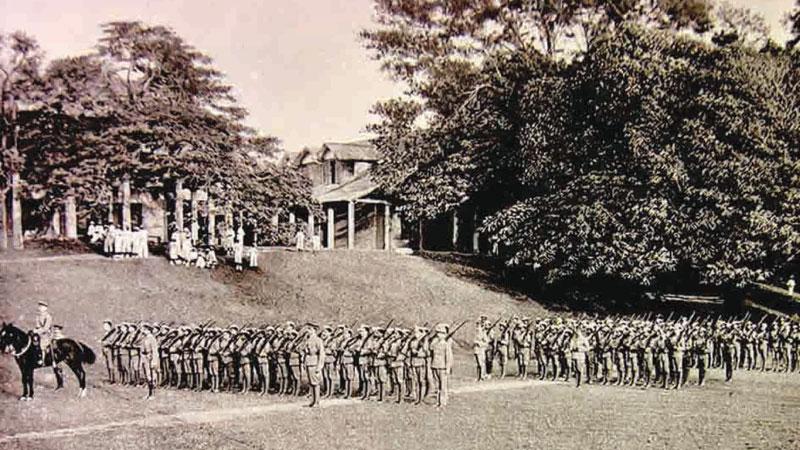
In the history of Lankan Cadets, the Reid Avenue School holds the legacy undoubtedly, as it was Royal College's Principal, John B. Cull in 1881, who initiated Cadetting in the country. Captain V.S.S. Gunawardana, Cadet Officer of Royal had much to share about the history of cadetting.
“In fact, Sri Lanka was the fourth country in the world to start cadetting. Before us, it was only Russia, the United Kingdom and Canada who had cadet platoons. Therefore, Royal College holds the record of being a pioneer force not only in the country but in the entire world in cadetting. Literally, Sri Lanka is the first country and Royal College the first school to start cadetting in entire Asia,” said Captain Gunawardana.
“Some say that cadetting was started in order to maintain the discipline of the students of Royal College which is not true. We never had issues with the disciplining of our boys,” he said.
Royal College is a school which has been nourished by a range of traditions; This is so in the present and surely will be in the future. The Head of State gracing the annual prize giving has been one of the earliest traditions at Royal College. Cadetting has some special connection with this tradition.
During British rule, the Head of State was the King of England and in his absence the Governor who was the representative of the Crown, attended the annual prize giving of the College. Principal John B. Cull wanted to welcome the Governor with a Guard of Honour, like in England. “He thought of starting cadet training in the College with the support of the Ceylon Light Infantry. That is how and why cadetting started,” said Captain Gunawardana.
In 1979, the Senior Cadet Band Platoon was established and in 2007 Royal College was one of first schools to establish Air Force Cadet platoons in the country.
The College currently claims seven platoons - Army, Airforce, Navy, Police, Western Band, Junior Airforce, and Junior Western Band with 175 students, perhaps the largest cadet force of the country in one school. Nonetheless, in a college where there are more than 8,000 students, being selected to one of its cadet platoons as well as remaining in it, is quite a challenge to a student.
“I don’t take in students who score less than 60 marks in all subjects. I check their term test results regularly. If a student has more than 60 marks in all other subjects, with 55 in one subject, I avoid taking him for cadet training. We don’t terminate his cadetship, instead we give him another term to get back to the academic path. This is because we want to see a balanced individual passing out from the College,” the Captain said.
He said, “Today, there is big competition for the Herman Loos trophy. We have won the trophy seven times so far. But rather than the competition, we focus on the individual development of our students. For instance we produce a person who is not racist, not selfish and who will not discriminate against anybody. That is the uniqueness of Royal cadets, I would say.”
